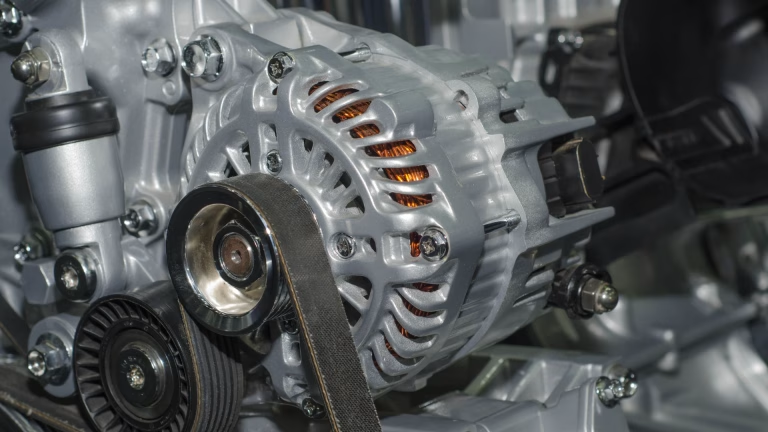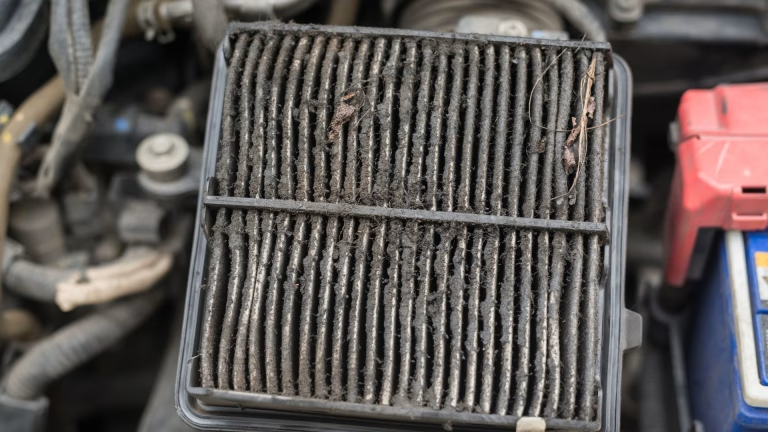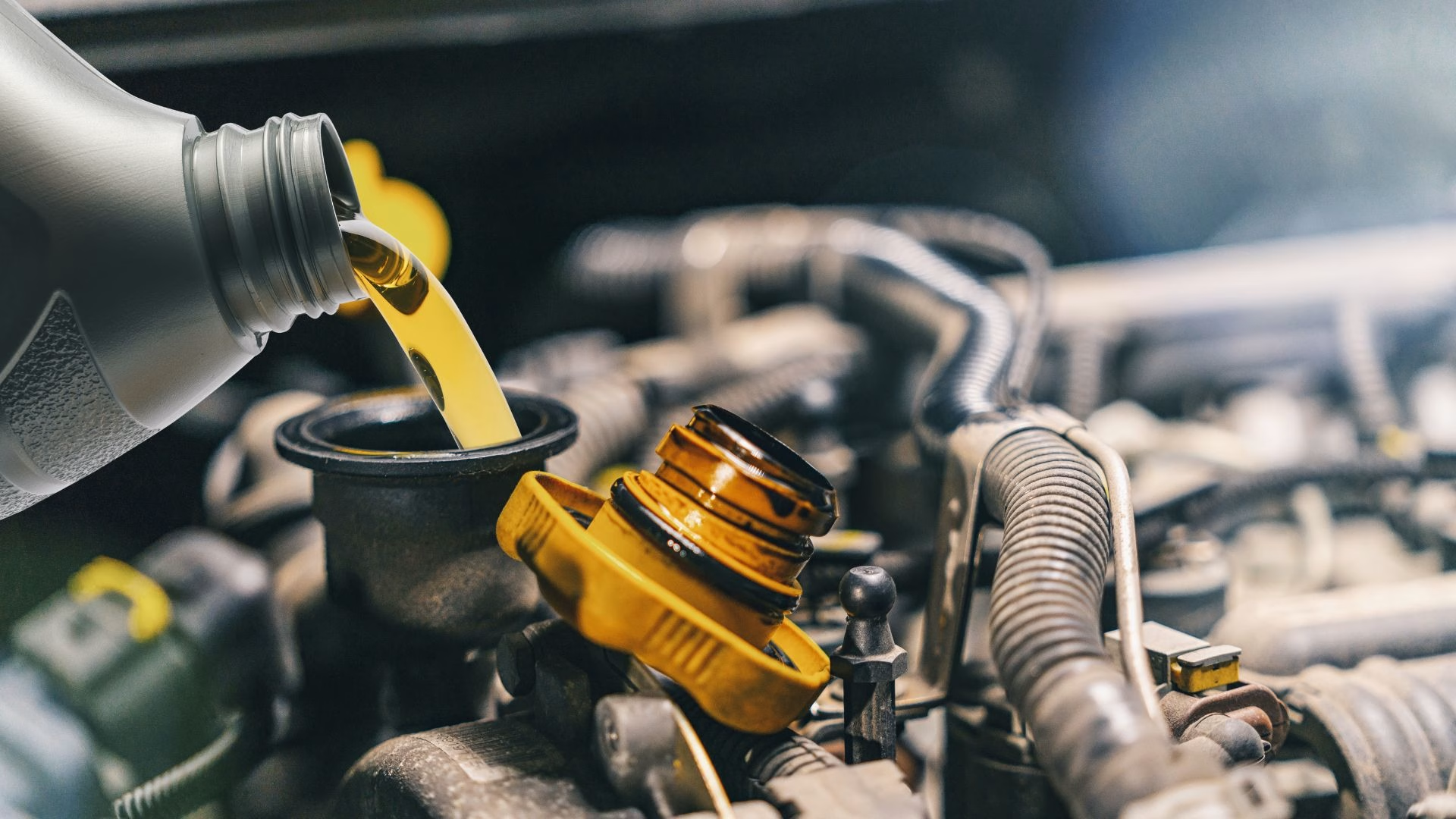
Engine oil Problems is often referred to as the lifeblood of a car’s engine. But over the years, working in auto repair, I’ve realized how many drivers underestimate its importance. I can’t count the number of times people have come into my shop with engine issues that could’ve been avoided with better oil maintenance.
This article is my attempt to share what I’ve learned from decades of repairing cars, hearing customers’ worries, and diagnosing oil-related problems. Whether you’re trying to avoid mishaps or want to understand engine oil better, I hope these insights will help.
What Does Engine Oil Actually Do?
Before we talk about problems, let’s lay the foundation. Engine oil performs several vital functions:
- Lubrication: It coats engine components to reduce friction and prevent wear as parts move at high speeds.
- Cooling: Oil helps dissipate heat generated by the engine.
- Cleaning: It traps dirt, metal particles, and combustion by-products to prevent deposits or sludge buildup.
- Sealing: Creates a tight seal between pistons and cylinder walls for optimal engine compression.
- Protection Against Corrosion: Prevents moisture and contaminants from damaging internal components.
Without adequate oil or the right type of oil, you’re looking at significant wear and tear, overheating, and, potentially, engine failure. And trust me, fixing engine failure is drastically more expensive than just changing your oil on time.
Common Engine Oil Problems and Causes
Engine oil plays a vital role in keeping your engine running smoothly. But when something goes wrong with it, your car’s performance can suffer. Here are some common engine oil problems and what typically causes them.
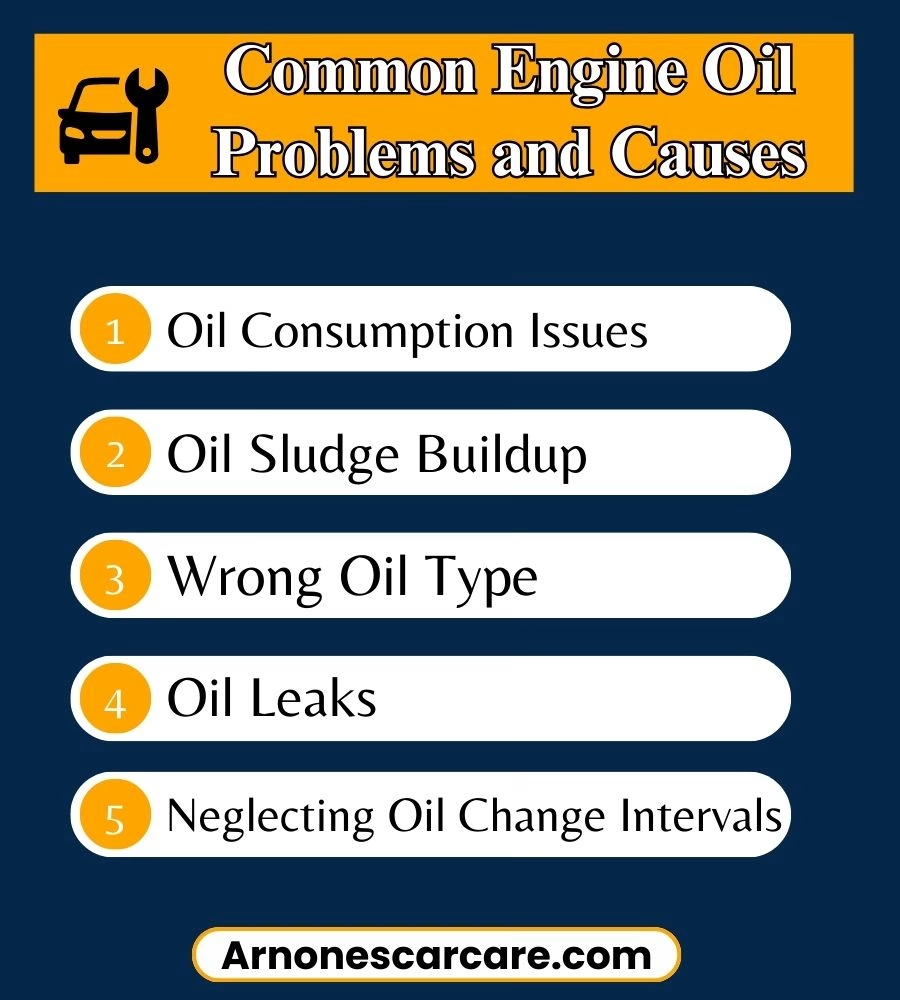
1. Oil Consumption Issues
Excessive oil consumption is a frequent issue we see in our shop, and it can have several causes. One customer with a 2016 Kia Sportage was in my shop because the engine oil light kept blinking during hard braking. When we checked the dipstick, it was bone dry, even though her most recent oil change had only been 7 months prior.
We added 3.5 liters of oil to bring it up to normal levels! After inspecting the car, there weren’t any leaks. The likely culprit? Old piston rings or valve seals allowing oil to burn off. Some engines just burn oil faster due to design, but low-quality oil or delayed oil changes can amplify the issue.
2. Oil Sludge Buildup
Sludge occurs when old oil thickens due to exposure to heat and contamination. I’ve seen engines caked in this gunk because owners kept postponing oil changes. A customer once towed in their 2008 Toyota Camry because it was overheating.
Upon removing the valve cover, the oil sludge was so thick it blocked the oil passages, starving the engine of lubrication. They had delayed oil changes for 20,000 miles, assuming synthetic oil would last forever. It didn’t.
Tech facts:
- Sludge is more likely to form with conventional oil (it breaks down faster than synthetic).
- Regular oil changes (every 3,000–7,500 miles depending on your oil type) and sticking to high-quality oils can prevent this.
If you’re dealing with sludge buildup, it’s also worth understanding how other components, like the timing belt’s role, can impact engine performance.
3. Wrong Oil Type
Using the wrong oil is another mistake I see way too often. Every engine has specifications for the required oil viscosity (e.g., 5W-30 or 10W-40) and formulation (conventional or synthetic). Using the wrong viscosity can either leave parts inadequately lubricated or cause oil to flow too slowly at startup.
For example, during a Kansas City winter, a driver used 20W-50 in their car, leading to starting issues because the oil was too thick for cold conditions. On the flip side, using oil that’s too thin in a high-performance engine can increase wear.
Quick guide:
- Check your owner’s manual for oil specifications.
- For colder weather, lighter viscosities like 0W-20 or 5W-30 perform better.
- If you’re towing or hauling heavy loads, a full synthetic like 10W-40 resists breakdown better in extreme conditions.
4. Oil Leaks
One of the most obvious engine oil problems is leaking. Oil puddles under your car or dripping from the engine might indicate worn seals, a loose drain plug, or a degraded gasket. One customer with a BMW 328i came in after noticing blue smoke from the exhaust. The problem? A leaking valve cover gasket allowed oil to enter the combustion chamber. After replacing the gasket and cleaning the spark plugs, their car ran as good as new.
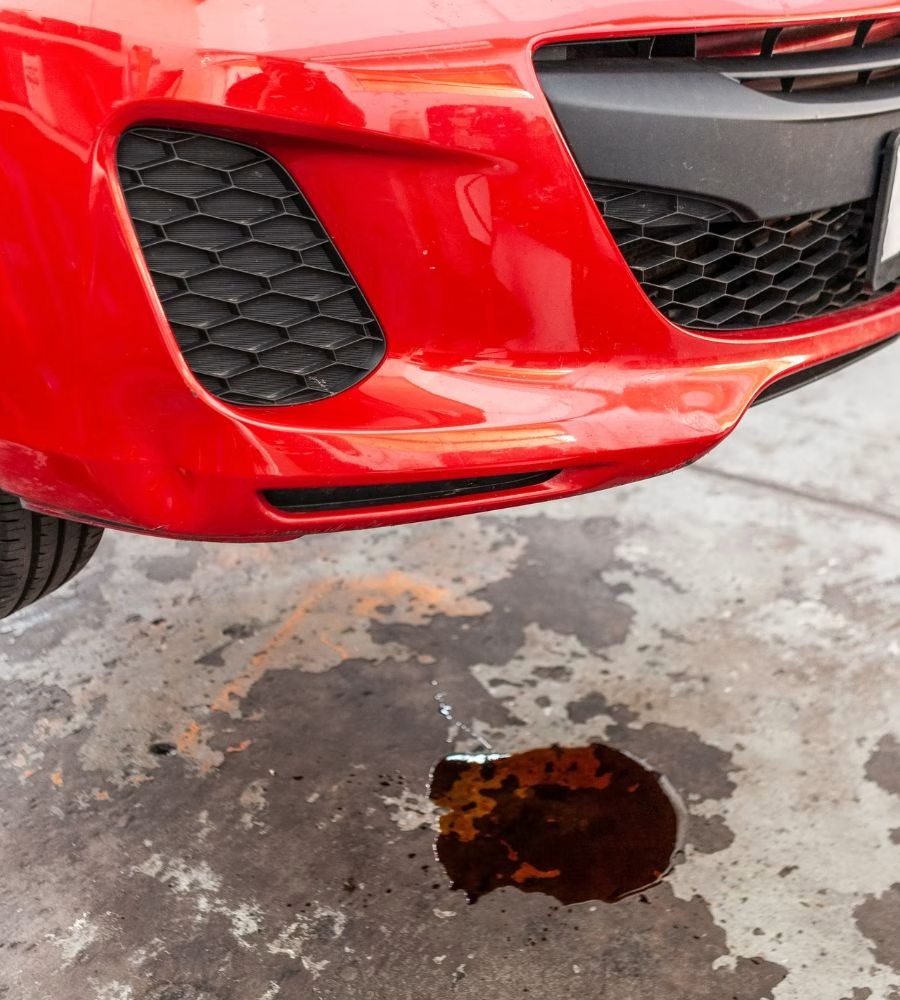
Ignoring leaks can lead to a low oil level, overheating, or even a destroyed engine. If you notice oil stains on your driveway or garage mat, get it checked out. Additionally, unresolved leaks can sometimes lead to engine stalling, which is another serious issue to address promptly.
5. Neglecting Oil Change Intervals
Skipping oil changes is perhaps the most common mistake. One vehicle in my shop showed symptoms like knocking noises and sluggish acceleration. When we checked the oil, it was thick as molasses. The combustion by-products, metal shavings, and sludge had clogged the oil filter and passages, leading to poor engine performance.
Some customers think modern oils don’t need frequent changes, but even synthetics degrade over time. And for vehicles under heavy use (e.g., lots of stop-and-go driving or towing), oil change intervals should be even shorter than the manufacturer-recommended mileage.
Indicators of Engine Oil Problems
It’s crucial to pay close attention to your car’s behavior, as it often provides clues about oil issues. Here’s what to look out for:
- Low Oil Level on Dipstick: Always wait at least 5 minutes after shutting off the engine to check your dipstick for an accurate reading.
- Dashboard Warning Light: An illuminated oil pressure or check engine light often signals low oil levels or pressure. If this appears even briefly, don’t ignore it.
- Knocking or Ticking Noises: A lack of lubrication can cause the engine’s metal components to grind, creating a knocking sound.
- Exhaust Smoke: Blue smoke? That’s likely burning oil due to worn valve seals or piston rings.
- Burning Smell: If you smell burning oil, it could be leaking onto hot engine components.
- Decreased MPG: Poor lubrication makes the engine work harder, reducing fuel efficiency.
Our Top Oil Maintenance Advice
Here are practical tips I share with customers to keep their engines happy:
- Regular Oil Checks: Check your oil level monthly. Don’t wait for a warning light.
- Follow Manufacturer Guidelines: Use the recommended oil grade and type for your vehicle.
- Don’t Ignore Signs: Small annoyances like ticking noises or darker exhaust smoke can be clues something’s wrong.
- Invest in Quality: High-quality oil and filters may cost more initially but save thousands in engine repairs.
- Educate Yourself: Watch online tutorials to understand how to check oil levels, replace filters, and recognize warning signs.
Expert Auto Repair Solutions in Kansas City
Engine stalling isn’t always easy to figure out, but you don’t have to handle it on your own. At Arnone’s Car Care, we’re here to make sure your vehicle stays reliable. From minor issues to major repairs, my team and I have the skills and experience to get you safely back on the road.
Don’t risk getting stuck—call us today at (816) 471-8560 or come see us at 1326 E 8th St in Kansas City. Book your appointment for our reliable service, and let us show you what dependable auto care looks like!

